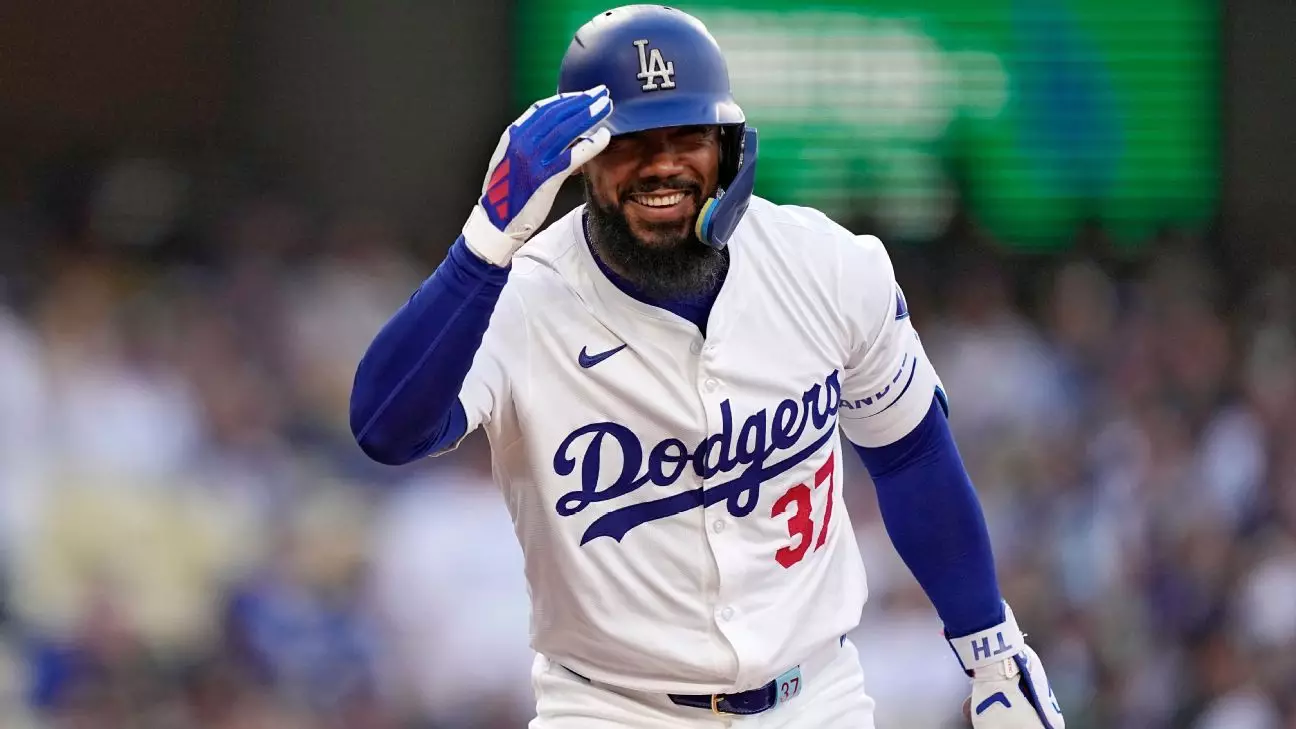Teoscar Hernandez’s return to the Los Angeles Dodgers marks a pivotal moment for both the player and the franchise. The recent agreement for a three-year, $66 million contract not only signifies loyalty but also encapsulates the Dodgers’ strategic vision for the upcoming seasons. Amidst the growing competition in Major League Baseball, the Dodgers have made a calculated decision to partner with a proven All-Star outfielder who has already demonstrated his capabilities within the organization.
Hernandez’s deal provides a comprehensive financial landscape for the Dodgers. The contract includes additional incentives such as a $15 million club option for 2028 and a $6.5 million buyout, as well as $23.5 million in deferred money and a sizable $23 million signing bonus. This complex financial structure illustrates the Dodgers’ approach to long-term player retention while also managing payroll flexibility, which is increasingly crucial in the current economic climate of MLB.
During his press conference, Hernandez articulated his appreciation for the Dodgers’ organization, stating, “They think about everybody, not only the player and what I can do on the field.” This reflects a foundational aspect of the Dodgers’ culture; they prioritize not only performance metrics but also the psychological wellbeing of their athletes. This supportive environment has undoubtedly played a role in Hernandez’s decision to forego more lucrative offers from other teams, indicating that intangible factors like team morale and personal growth sometimes outweigh financial incentives.
Statistically, Hernandez’s performance in the previous season reflects an athlete at the peak of his game. Batting .272 with a career-high of 33 home runs and 99 RBIs demonstrates his capacity to be a cornerstone in the lineup. Further evidence of his prowess came with a .339 on-base percentage and .501 slugging percentage. His remarkable postseason, where he reached base safely in 15 of 16 games, underscores his ability to perform under pressure—an essential quality for any player looking to secure their legacy with a championship-contending team.
General Manager Brandon Gomes has outlined the roadmap for Hernandez’s role, designating him as the right fielder for the 2024 season. Interestingly, the plan involves shifting Mookie Betts to shortstop, showcasing the team’s innovative approach to player positioning. This strategic reallocation of talent within the roster demonstrates the Dodgers’ intent to maximize player abilities while adapting to the evolving needs of their game plan.
As Hernandez embarks on this new chapter with the Dodgers, his impact is expected to resonate throughout the organization. The melding of financial strategy and player-centric philosophy has positioned the Dodgers to not only compete but excel in an unpredictably challenging league. With his experience and skills, Hernandez is not just returning; he is stepping into a critical role that could define the team’s trajectory for years to come. As fans and analysts alike watch closely, Hernandez’s commitment to the Dodgers exemplifies the deeper narrative that goes beyond numbers—an enduring bond between a player and his team.

